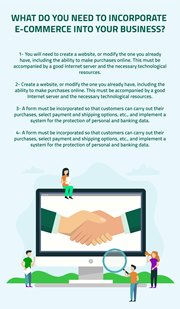How are Eurozone Nations Taking Advantage of E-Commerce Technology?
The European Union is a true powerhouse in terms of the production of goods and services. While some may argue that China is hot on the tail of this region, the EU nonetheless represents a retail juggernaut.

Smart, Agile and Efficient
In the past, enterprise ecommerce solutions were generally relegated to larger organisations due the their rather hefty price tags. It should also be pointed out that these very same systems required the presence of highly trained in-house IT professionals and similar experts due to their complicated nature.
One of the most predominant trends which has been witnessed in modern times involves the rise of user-friendly platforms designed around the needs of small- to medium-sized organisations. Major e-commerce providers realise that this is a huge market and as a result, even start-up businesses can access professional tools within no time at all. These systems are smart, highly efficient and streamlined to the point that implementation and migration will no longer present any real issues.
Ablating Traditional Borders
We are all aware that businesses and individuals across the European Union have taken advantage of the Schengen Laws in order to travel unfettered between two different countries as well as to ship goods and services to customers without having to be concerned with tariffs and similar surcharges. These advantages have now been taken to the next level due in no small part to the rise of cutting-edge e-commerce solutions.
Companies can now proactively promote what it is that they have to offer thanks to customised templates, malleable digital storefronts and numerous payment options. Thus, the ability to work hand in hand with distributors and end users has been dramatically simplified within a short period of time.
However, the European Union still faces a number of economic challenges thanks to increased levels of competition. How can companies remain one step ahead of the game and why are customers more fickle than ever before? These are two of the many questions which must be addressed so that the appropriate retail and marketing steps can be taken at the appropriate times. The main issue is that no firm is equipped with the proverbial "crystal ball".
This is why reevaluating current e-commerce solutions in order to determine their ultimate efficacy should take place on a relatively frequent basis. By identifying any drawbacks and areas that need improvement, firms of all sizes will have the capability to thrive within such a burgeoning retail atmosphere. The future of the European Union looks undeniably bright.
